Raspberry variety Apricot
What do we associate pleasantly with summer? Sun, sea, summer cottage, and, of course, delicious fruits. And in particular, of course, apricots. We all love them and look forward to the start of the summer season to enjoy them. And the appearance of raspberries with the name Apricot immediately intrigued many, skillfully drawing a parallel between these delicious sunny fruits and the beautiful orange berries of the new variety. Did he manage to become loved by us, like apricots - in our article below.
So, Apricot is a remontant yellow-fruited variety of universal raspberries. It received distribution for the original, attractive color of berries and their relatively high taste. Recommended for all areas of cultivation.
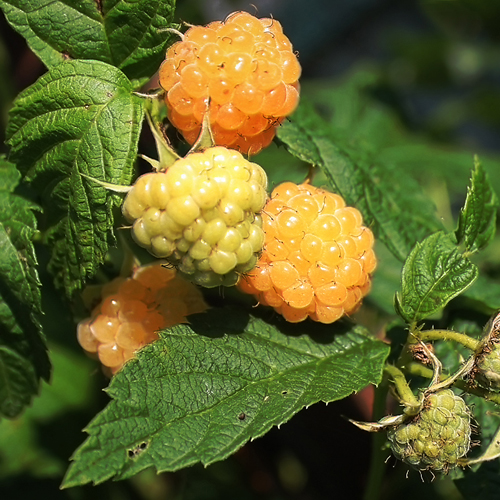
History of creation
Our heroine was bred by Russian breeders, the legendary academician of the Russian Academy of Agricultural Sciences I.V. Kazakov and S.N. Evdokimenko, from seeds obtained from free pollination of interspecific remontant forms of raspberries, selected under number 13-222-A. Since 1996, the new variety has become known as "Apricot", getting its name for the characteristic color of the fruit. Russian patent No. 2417 was issued in 2004. The copyright holder is the Federal State Budgetary Scientific Institution "All-Russian Institute of Selection and Technology of Horticulture and Nursery".
Description
The bush is of medium growth, 1.3-1.6 meters high, slightly spreading. Shoots are straight, medium in thickness, green in color with a slight waxy coating, covered with thin green spines curved downward. The thorns are mainly concentrated in the lower and middle part of the stem. Shoot-forming ability is average - 5-6 shoots are formed per season. Leaves are medium in size, slightly wrinkled, green, without pubescence, slightly sharp edges. The flowers are not large. Raspberries reproduce well.
Berries are blunt-conical in shape, beautiful golden apricot color. Their average weight is 3 - 3.5 grams. Drupes are small, tightly interconnected. The fruits are well separated from the fruit, when ripe they can crumble from the bush.
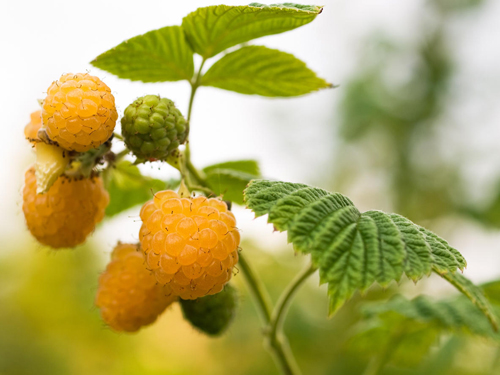
The fruits of Apricot are mostly of "dessert" taste, with tender and juicy pulp. They are more sweet-sour than sweet-sour, but in well-ripened berries (with a pinkish-orange color), the taste becomes quite good, there is a delicate raspberry aroma, the sweetness becomes much more. Sugar content (BRIX) - 10.4, acid - 1.3, expert tasting score - 4.5 points. Raspberries are used for fresh consumption and for all types of processing; various golden jams and preserves look especially impressive. They are poorly suited for freezing.
The yield at Aprikosova is good, it is 1.5-2 kg per bush and, accordingly, 9-11 t / ha. Ripening is extended, from early August to November. Until this time, the variety manages to give up to 70% of the harvest. Moreover, the fruiting zone covers more than half of the shoot.
According to the patent, raspberries are poorly affected by diseases and pests. Since this is a remontant, the cultivation technology provides for mowing the above-ground part "to zero" in late autumn or early spring.
Based on the feedback from gardeners and our observations, I would like to note a few nuances.

- A few words about prevalence. With an insignificant market saturation, at the time of the appearance of Aprikosova, other yellow-fruited varieties, our heroine caused a stir. The sonorous and beautiful name also contributed to this. But now she is frankly losing to other varieties.
- When fully ripe, the fruits crumble from the bush.
- Raspberries are quite sensitive to rainy and cool weather, the taste of the fruit changes dramatically to sweet and sour, and in general, among people who grow or cultivated, and then uprooted it (and there are plenty of them), there are a lot of complaints about the taste, which radically contradicts patent data where high sweetness is prescribed.
- Transportability and keeping quality are poor, the berries themselves often fall apart, the so-called "looseness" among the people.
- Apricot requires a mandatory garter - under the load of numerous berries, the bush falls over.
- The variety can be affected by "raspberry dwarfism" - a viral disease carried mainly by sucking pests. One of the signs is that a planted plant can remain practically the same size for a year or two as when it was planted. Often this phenomenon can be observed in the summer variety Cascade Delight.
In general, our heroine has much more minuses than pluses, especially since now there are plenty of other interesting varieties in the assortment of sellers. The choice, of course, is up to you. Apricot can please with the harvest, but this requires certain conditions: abundant watering so that the fruits are poured to a good size, warm autumn, not arid and hellishly hot summer, trellis for support, a good planting site and suitable nutrition, picking berries at the stage of full ripeness ... And there is no need to build any commercial plans. This raspberry is purely for personal consumption.
Author: Maxim Zarechny.
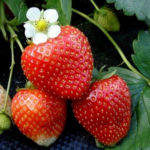
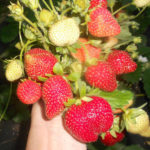
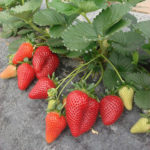
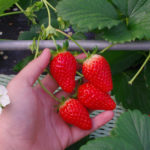
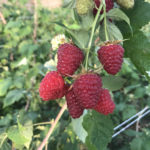
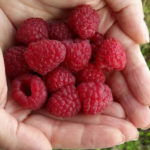



I planted it on my site because of the unusual color of the fruit. The taste of berries is original, for an amateur, with sourness. I use it more for jam than for fresh food. But it is resistant to diseases. Year after year is not necessary, I mean the harvest. Now empty, now thick, very capricious to the weather. But all the same, because of the unusual color and taste, I keep it.